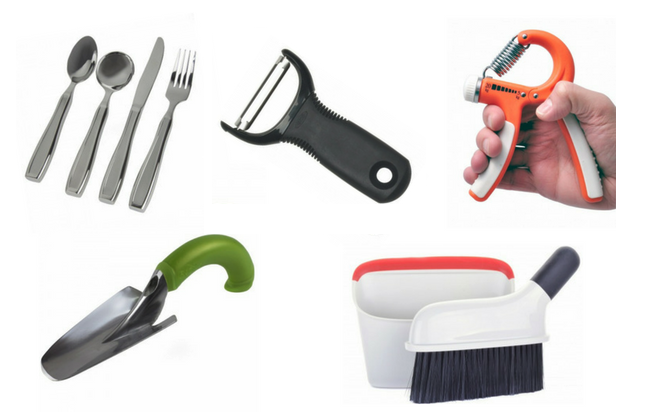Free delivery on orders over £50, only £4.95 under £50
Free delivery on orders over £50, only £4.95 under £50
Welcome to our blog, your one-stop resource for news, features and resources for living life to the fullest. View our articles on the latest mobility products and features with disability bloggers.
Posted by Mike Phipps on December 10, 2018

Living with reduced grip or tremors can affect how your hands and fingers can hold items due to a loss of dexterity or shaking which you are unable to control. Treatment and daily living aids can help to manage symptoms and help to make daily tasks easier.
Depending on the severity of the reduced grip or tremors, you may want to seek help, especially if it is affecting your daily life and activities. However, it is important to note that it is normal to have a slight tremor and you should only seek help if you’re struggling to cope with day-to-day tasks.
Common causes of tremors can include ageing, emotional stress, tiredness, anxiety or angriness, drinking caffeine or smoking or if extreme body temperatures. Some types of medication or medical conditions can also cause tremors, such as Parkinson’s disease or multiple sclerosis.
Factors like getting older can often cause a loss of or limited dexterity. Reduced grip and movement in the hands can also be a symptom of arthritis, a condition which causes joints to become stiff and swollen. This could be caused by ageing, a joint injury or if you have a family history of arthritis.
If you notice your tremors or dexterity getting worse over time, or if it is affecting your daily activities, you should seek help and advice from GP immediately. They may be able to determine whether your problems are caused by medication that you may be taking, if you have any other symptoms or if the same issues run in your family. If your dexterity or tremors are only mild your GP might monitor you to see if they get worse, or refer you to a specialist if your symptoms are more concerning. Severe tremors may require you to take medication regularly.
Living with a tremor or a loss of dexterity can affect your life on a daily basis, but the right living aids can help to make day-to-day tasks easier. Products like weighted cutlery or utensil straps help to make dining safer whilst reducing spills caused by tremors, and items with ergonomic handles are ideal for ensuring a comfortable grip, whether you’re gardening or writing, or cooking or sweeping. As part of your treatment, your GP may advise that you strengthen the muscles in your hands by using an exerciser to squeeze and improve your dexterity. Depending on what type of hand exerciser you choose, you can adjust the tension to be more of a challenge when you feel your muscles getting stronger.
